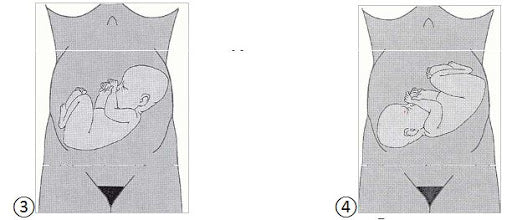
In some situations, you may need to sleep with a Holter. It may seem strange to sleep with. Therefore, it is useful to know in advance what kind of device the Holter monitor is and how to sleep with it.
Sleeping with a Holter: Habits to adopt
Try to be as relaxed as possible. You can try to relax by following these steps:
- Straighten and release your legs several times
- Write down your concerns
- Read something relaxing
Urban artist sleep in a different position the one you sleep in can help. Same sleep in a different place or in a separate bed can help you sleep with a Holter.
But what is the Holter monitor used for?
The Holter monitor is a device that records your heart rate and rhythm over a period of time, usually 24 to 48 hours.
The reason for using the Holter monitor is that it can collect data for a much longer period than a regular ECG. It can provide crucial data that a normal ECG cannot provide because it only monitors a very short period of time.
Using a Holter monitor, your doctor can get important information about your heart. During the time you wear the Holter monitor, abnormal heart rhythms and other heart symptoms may be detected which will help your doctor make a diagnosis.
With the information gathered, your doctor can help you recover, providing you with the right care. The most common benefit of this monitoring is that your doctor can find the right type of medication for you. Next, your health will likely be stable and you can continue to enjoy your life!

How to successfully sleep well with a Holter?
The main goal is to sleep as comfortably as possible and try to ignore the existence of the device, patches and electrodes.
But, how can you sleep without disturbing the placement of the device and these electrodes?
try to calm down
You need to find a convenient relaxation method for sleeping with a Holter.
Straighten and relax your legs a few times:
When you feel nervous, especially when trying to sleep with the monitor on, your body may feel stiff.
In such a case, you can relax your body by straightening your legs first:
Lift your toes towards your head:
Keep your legs tensed for at least 15 seconds and release
Repeat several times if you feel it
You can also do a similar relaxation exercise with your shoulders, arms, or other muscles where you feel the tension.
Write down your concerns:
This technique can help you get rid of worries related to the Holter monitor or anything else.
Just write down all your concerns. Above all, write down your concerns about wearing and sleeping with the Holter monitor.
If you're feeling nervous about the results you'll get from Holter monitoring, you can write those down too.
Read something relaxing:
Try reading something relaxing, or better yet, something boring.
Reading can also relax you, as you can take your thoughts away from Holter monitoring.
It may be preferable to read a real book instead of reading using a mobile phone or tablet, as reading with such devices can disrupt your ability to fall asleep.
Try different sleeping positions:
Sleeping on your back would be the best practice when you need to sleep with a Holter.
The electrodes are on your chest and you can keep the Holter on your side. Or you can attach the monitor to the waistband of your pajamas, so it's even less disturbing.
If it is possible for you to sleep on your back, you will probably notice that the device, wires and patches are not so disturbing.
Like this, the patches probably won't loosen.
This can be difficult if you haven't slept on your back before. But you should try it, if it is physically possible for you.
What helps you sleep on your back?
Try to use as many pillows as you want to feel as comfortable as possible. If you usually use only one pillow under your head, you can try placing two or even three pillows under your head. Ideally use a travel pillow for more comfort.
You can also place one or two memory foam pillows under your legs. This can help keep you on your back and in a stable position throughout the night.
When you sleep on your back, you probably won't even notice the Holter monitor.
Remember, when you lie on the bed on your back, just try to relax.
If you move a lot when you sleep, it may be more difficult to sleep with a Holter. One issue you might think about in advance is whether the pads might loosen or be misplaced when you move around while you sleep.
But don't worry too much: when you get the Holter monitor, the patches and electrodes are tightly sealed with tape, so they should stay on your chest even if you move a lot during your sleep.
But what if you still feel like you can't sleep as usual?
If possible, sleep in another place or in another bed
Sleep in a hotel or another room in your house can help if you don't usually have problems sleeping in a different bed. This can be a good idea if you often experience stress when trying to fall asleep in your own bed or in your home. Of course, this is a problem you need to address if you don't feel like your own bed is comfortable enough.
When you have to wear the Holter monitor and sleep with it, it is good to try to do some preparations, so that you notice the device, wires and patches a bit.
That's why changing your normal sleeping place to another can help you sleep normally, even better than in the normal situation.
You need to test which of these tips will work for you. If you have the possibility to test some of these practices before sleeping with a Holter, that would be wonderful. If you can't, you need to test it with the device. However, don't worry too much: you'll find the best way to handle it by trying these different ideas.
In any case, finding the best solution for sleeping with a Holter can be a bit difficult. Especially if you feel uncomfortable having all the patches on your chest and the device itself.
Remembering that it's for your benefit can help, while wondering what kind of results you might get can cause unwanted extra stress.

What should be avoided while sleeping with a Holter?
Because a Holter monitor is quite a sensitive device, you should know what not to do while sleeping with the recorder on.
- Make sure the Holter monitor won't go under you while you sleep
- Avoid using an electric blanket
- Keep away from magnets
- Keep your cell phone and other similar devices "at least 15cm from your chest"
All of these situations can affect the data provided by the Holter monitor.
What to do if the Holter fell off during sleep
Check if the monitor is still working. If it works and the pads are in place, you don't have to worry. You may want to write in the log that it is down, in case there are signal changes during the time the monitor is down.
If it appears that the monitor has stopped working, contact the service provider where you obtained the Holter monitor for further instructions.
If the electrode (or sticker) of the Holter monitor fell off during sleep, clean the skin with rubbing alcohol. Put on one of the extra stickers that came with the monitor. In the diary, write down the time the sticker fell off and when you put on a new one. »
It may help to wear a tight top while sleeping with a Holter. Then the pads can stay more firmly on your chest.
Don't worry, it's not as scary as it sounds!
It's completely understandable to feel some trepidation when you have to live with the machine and the wires. And sleep with them! Especially if it's your first time. You don't want to have any disturbances when you want to sleep.
But remember, it's to your advantage; it's not meant to worry you. Even if you are thinking if there is something wrong with your heart, remember: don't worry.
Is it important to get a good night's sleep with Holter?
It is very important to sleep well while wearing the Holter monitor. Indeed, the reason you watch yourself at least 24 hours is to collect data about your heart rate during all kinds of your normal daily activities. Including when you sleep.
This means that you should try to keep your daily schedule and sleeping patterns as normal as possible. You shouldn't need to make huge preparations to sleep with a Holter. However, it is good to be prepared one way or another.
In fact, in some cases, the period may not only be 24 or 48 hours, but you may need to carry the Holter monitor for several weeks.
One good thing is that devices aren't that big these days. Fortunately, technology has advanced and nowadays Holter monitors are much smaller and much lighter. Furthermore, the device makes no noise.
Still, it can be difficult to sleep well with a Holter because all the wires, patches, and surely the device itself can be disturbing. Also, thinking about what will happen after you get the results can be frustrating.
If you feel stress with the device, be sure to ask your doctor and nurse for advice. They know the best ways to manage the Holter monitor during the time you need to wear it, including overnight. Do not hesitate to share your feelings and concerns with them. They will surely have good advice to share.


























